If you’re having difficulties getting pregnant, this write-up will help you find out more about some of the most likely causes of infertility in women (otherwise known as female infertility) and the solutions that will help you overcome each of them.
Many couples trying to conceive (TTC) get stressed and upset about how hard it can be to get pregnant.
According to statistics, about 6.7 percent of married women ages 15 to 44 are infertile, which means they have difficulty becoming pregnant after trying (having unprotected sex) for one year (or six months for women that are 35 years or older).
So, if you or someone you know fall within this category, the details below will be of tremendous assistance in making you understand the likely cause of your inability to get pregnant and the right solution or approach to restore your fertility and carry your own baby as fast as possible.
1. Uterine Abnormalities
Explained in details below are the different forms of uterine abnormalities that can cause female infertility including the solution to over come them.

a. Uterine Fibroids
Fibroids are usually noncancerous masses of muscular tissue and collagen that can develop within the wall of the uterus. They may be associated with reproductive problems depending on the number of fibroids you have in your uterus and on their size and specific location.
In some cases, fibroids may interfere with the implantation of the fertilized egg, thereby causing infertility.
Read the experience of someone (who approached us for fibroid solution sometimes back) concerning the effect of fibroid on pregnancy;

Below is another one;

Aside causing difficulties with pregnancy, Fibroids near the endometrial lining may also cause very heavy periods and problems with an embryo implantation or pregnancy complications.
Most fibroids, since they are not in the lining of the uterus, don’t impact your pregnancy or create a high-risk pregnancy, but you may have a higher risk of miscarriage or infertility.
These days, you actually do not need to go under the knife to be free from fibroid. Now, there are better and safer ways to get rid of fibroid naturally without surgery.
Click here to read more about a natural remedy to treat and get rid of fibroids without surgery and with no side effects.
b. Uterine Adhesions/Scar Tissues
Scar tissues (also known as Adhesions, Uterine Synechiae or Asherman’s Syndrome) in the uterus or any other part of the female reproductive system is also one of the most common causes of infertility in women.
One of the major signs of intrauterine adhesions is the loss of monthly period flow or scanty flow.

Scar tissue formation is one of the major side effects of surgery or surgical procedures carried out on any part of the female reproductive system. That’s why you want to think twice before you embark on a surgical procedure as a solution to a gynaecological challenge.
Find out first if there is another option from your doctor or any other therapist around. Many women have had their reproductive system messed up as a result of one surgical procedure or the other. Though, the eventual side effects from surgeries are not intentional, they are however avoidable.
See someone’s experience below;

Meanwhile, there is a natural remedy that can help your heal scar tissues and also bring back your period. Click here to read more about how to treat uterine adhesions and scar tissues naturally.
2. Tubal Issues

Damaged or blocked Fallopian tubes can prevent sperm from getting to your eggs and prevent the fertilized egg from getting to your uterus, thereby causing infertility.
A lot of women battling with infertility today fall within this category. A simple way to find out the status of your Fallopian tubes is by running an HSG (Hysterosalpingogram).
Some common causes of tubal problems include sexually transmitted infections like chlamydia and gonorrhoea, which can lead to pelvic inflammatory disease (PID), a generalized infection of the pelvis that can cause scarring and blockage of the Fallopian tubes and endometriosis.
If it has been confirmed that you have issues with your Fallopian tubes, click here for a natural remedy that will help you unblock and repair it without surgery and with no negative effect.
Here is a natural remedy for unblocking blocked Fallopian tubes that can help you https://www.planbwellness.com/tubal-blockage
3. Ovulation/Hormonal Problems

Ovulation issues may be caused by polycystic ovarian syndrome (PCOS). This is a case of hormonal imbalance that can interfere with normal ovulation.
Primary ovarian insufficiency (also known as premature ovarian failure, or POI) can also cause ovulation problems.
POI is when your ovaries stop working properly before age 40, affecting your release of eggs and chances of pregnancy. (Note that POI precedes menopause, which is when you’ve completely stopped ovulating and having periods.)
Hyperprolactinemia is where you have too much prolactin, the hormone that stimulates breast milk, and that may also interfere with ovulation.
Thyroid issues— too much thyroid hormone (hyperthyroidism) or too little (hypothyroidism)—can affect your menstrual cycle too.
Please note that both hyperprolactinemia and thyroid conditions can be easily treated, so it’s important to seek diagnosis.
Ovarian Cysts also fall under this category as they may sometimes be problematic.
- PCOS: Click here to see a natural remedy for PCOS.
- Hormonal Imbalance: Click here for a natural remedy for hormonal imbalances (such as hyperprolactinemia, thyroid issues and many more).
- Menstrual Disorder: Click here for a natural remedy for irregular menstruation.
- Ovarian Cyst: Click here to read about a natural remedy for Ovarian Cysts.
4. Old Age

The mere act of waiting to get pregnant contributes to infertility. Many women do wait until their 30s and 40s to have kids. About one-third of couples in which the woman is over 30 have fertility problems.
Time and biology are on your side during your 20s. At this stage, your body is ready for pregnancy. Experts say that the average woman’s fertility peaks during her early 20s, and you have the highest number of quality eggs at this stage.
A younger woman’s eggs are less likely than an older woman’s to have genetic abnormalities that cause health conditions like Down syndrome.
The risk of miscarriage is also lower. Studies show that the risk of miscarriage is 12 percent to 15 percent for women in their 20s compared to about 25 percent for women at age 40.
It’s also physically easier for women in their 20s to carry a child because there’s a lower risk of high blood pressure, gestational diabetes and other health issues that can complicate pregnancy.
Furthermore, younger women are less likely to have low birthweight or premature babies. When you’re older, your ovaries have a smaller number of eggs left, and your eggs aren’t as healthy.
If age is not on your side and you need to boost your chance of conception, click here to check out the Female Infertility Remedy Kit that has the capacity to help restore your fertility with production of quality and fertile eggs.
5. Unhealthy Bodyweight

Keeping an inactive lifestyle and being overweight or obese can raise your risk of infertility and increase your risk of having miscarriage. Or, if you have an eating disorder like anorexia or bulimia or you follow a very low-calorie or restrictive diet, you’re at risk for fertility problems.
Fortunately, you can take measures to lose or gain weight and may be able to conceive once you get to a healthy body weight. Obese women may find they ovulate normally after losing as little as 5 percent of body weight—that’s just 5kg for a woman who weighs 100kg.
6. Abnormal Cervical Mucous
Cervical mucous, a fluid secreted by the cervix when oestrogen stimulates production, allows sperm to survive in the hostile, acidic environment of the vagina. Abnormal cervical mucus can prevent sperm from reaching the egg.
Read more about how to boost your fertility and chance of conception.
7. Endometriosis

With endometriosis, the tissue lining the uterus starts to grow in other places like behind the uterus, in the Fallopian tubes, in the abdomen, in the pelvis or the ovaries. That causes irritation and scar tissue development.
Some women with endometriosis have no symptoms. Others have painful intercourse or periods, heavy bleeding or unusual spotting and general pelvic pain.
Endometriosis can make it difficult to get pregnant because the condition can cause blocked Fallopian tubes, disrupt implantation, cause inflammation in the pelvis and perhaps impact egg quality.
Most healthy couples under age 35 who are trying to conceive and have unprotected sex every other day around the time of ovulation can become pregnant in a year. If you aren’t getting pregnant as fast as you want or hope, consider visiting your health care provider—and suggest your partner do the same, because the problem could be his too.
Click here to read about a natural remedy to overcome male infertility challenges.
If you’re older than 35, you may want to get help sooner because fertility decreases with age. The sooner you visit a fertility specialist, the more likely you’ll have success with fertility treatments.
Use any of our contact details below to get in touch with us today or drop a message for us about your case in the comment box below. Let’s work together to boost and restore your fertility.
Click here to see all the fertility-based remedies we offer at Plan B Wellness Limited.
If this write-up has blessed you in anyway, kindly go ahead and share with others too.
Stay healthy and never give up!
Plan B Wellness Nigeria Limited
Whatsapp, Call, SMS: +2348099666658, +2348099666648
Call and SMS only: +2348099666650
Email: consult@planbwellness.com
IG: @planbwellness
Twitter: @planbwellness

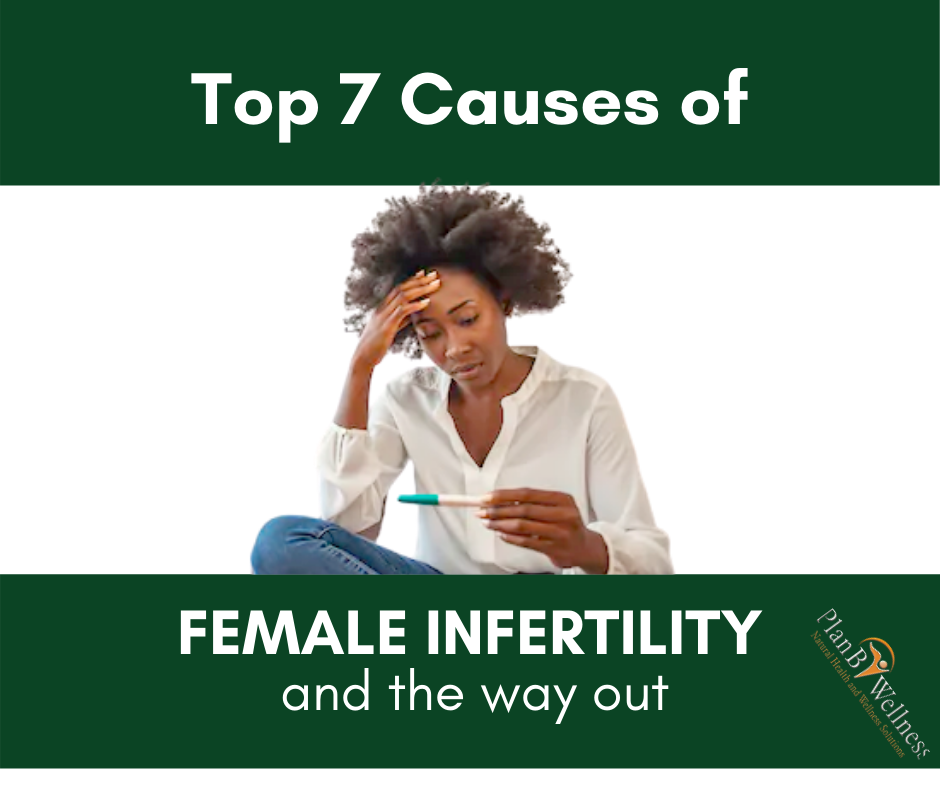

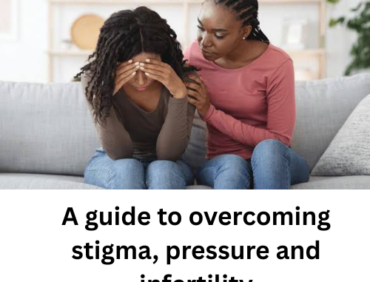
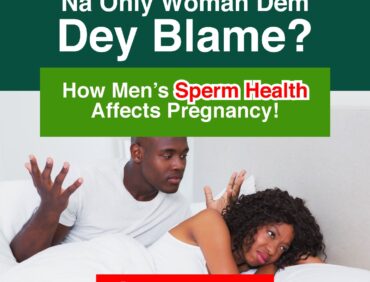
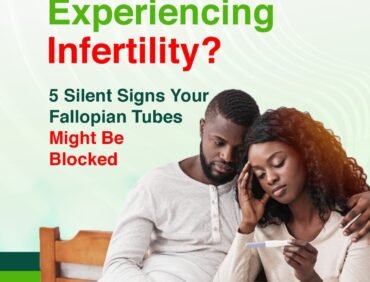
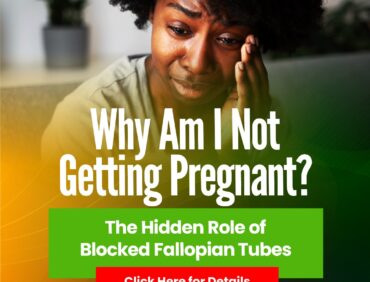
How do you really know you are infertile when you have once carried a baby in your womb but had a miscarriage? And after the miscarriage you try but to no avail
Dear Mincka,
Thanks for your comment.
Firstly, do know that history of fertility or having a baby in the past does not guarantee the fertility status of a woman will remain the same for years.
Now, based on your particular case as you have explained, it is likely that the evacuation procedure done when the miscarriage happened has led to the development of scar tissues which in most cases may affect the ability to get pregnant.
So, when there is a case of infertility in the part of a woman, the first step you want to take is to carry out proper fertility testing and examinations. The fact that a woman has been able to get pregnant before does not guarantee future pregnancy. Likewise for men too, the fact that a man has been able to impregnate a woman before does not totally guarantee he can always do that.
Both you and your husband should carry out proper fertility testing to know what the issue is.
I hope this helps you a bit.
if you need to discuss your case further with us, kindly reach out to our support team via whatsaapp on +2348099666658 or +2348099666648. You can also call +2348099666650.
Regards
Plan B Wellness
I had a miscarriage since jeune 2019, till today am un able to get pregnant again 😔😔😔😔😔 please what can i do, i went to the hospital and my doctor said my husband and i don’t have a problem
What are the causes of sperm leakage in females
What is the solution for low libido
I want to know more
Kindly reach out to our support team on whatsapp via 08099666658 or 08099666648. Thanks
What are the causes of sperm linkage
I too want to no the causes
I had miscarriage in November 2019 till now am still suffering to conceived, I had scanty menstruation too
If an evacuation procedure was done, you may likely be suffering from adhesion/scar tissues already. Running an HSG will confirm it to you whether that is the case or not.
Thanks
Pls what’s d probability of carrying a next pregnancy to full term and birthing a healthy baby after a chromosomal abnormalities stillbirth by a first time mum aged 45?
As woman ages, the probability of giving birth to a baby with chromosomal abilities increases. You can reduce your risk with healthy diet, herbs and lifestyle.
I want to join d discussion
I once had a surgery of ovarian cyst about 2 years now,,, trying to conceive since then
Ow can u help me with sparm ligage
Kindly reach out to our support team on whatsapp +2348099666658 or +2348099666648 madam.
We have a natural remedy that will help you stop sperm leakage in a matter of 30 days or less.
Thanks
Hi
Why is it dat after sex the man sperm come out back nd how do I knw am infertile, and what drugs or remedy can I use
I have a low AMH what can prescribe for me
Kindly make use of our Female Infertility Remedy Kit which offers a natural remedy for boosting female fertility natural to aid conception. Get more details about it on http://www.planbwellness.com/female-infertility
Thanks
Hi! I have polycYstic ovary and i am infertil. What can i drink to be able to conceive a baby
Kindly visit http://www.planbwellness.com/pcos for the natural remedy we offer for polycystic ovarian syndrome.
How can i get it
May we know which of the remedies in particular you are interested in madam?
You can as well reach out to our support desk via whatsapp on 08099666658 or 08099666648.
Thanks
[…] Fertility Massage, when performed on the lower abdomen, impacts the function of the uterus, ovaries, Fallopian tubes, liver, stomach and […]
yes
I am married for 5yrs I had etopic pregnancy in 2017,I have been having excessive bleeding from time to time .I don’t even know if am ovulating.how you help
Hello madam,
Thanks for your comment. For the bleeding, kindly visit your doctor for proper examination to find out the cause. That should be the first step to take. Then, get examined for the causes of your inability to conceive too. Once that is done, we will know what and what exactly to help you with.
Hope this helps you.
Regards
[…] women with this syndrome may experience light or no periods, pelvic pain or infertility. This can be treated and treatment often helps relieve your […]
[…] recurrent miscarriage is different from infertility, fertility doctors can help determine if in vitro fertilization (IVF), surrogacy, or other […]